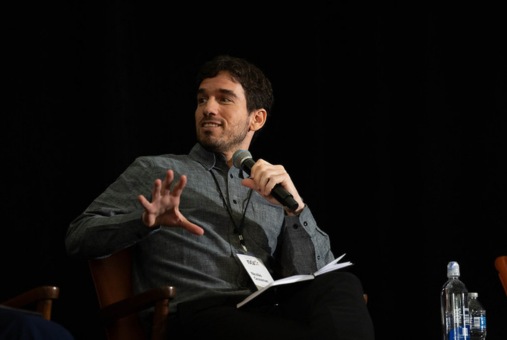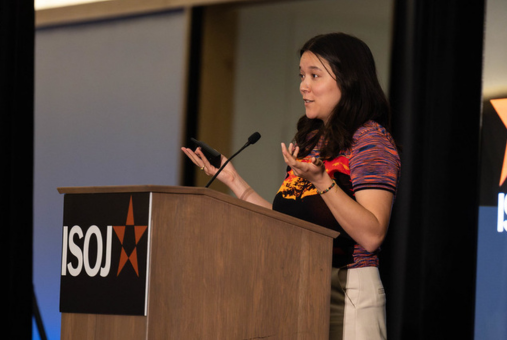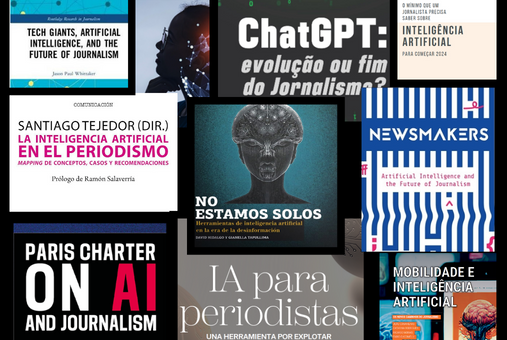
Artificial intelligence is transforming tasks previously done by journalists, like news writing, image generation and data analysis.

Argentina’s pioneering Chequeado created a lab to run experiments with artificial intelligence. In their first run, they tested how four AI models could help simplify complicated concepts.

A Reuters Institute study showed that the most popular generative AI platform in Argentina is by far ChatGPT, although very few people use it to get news. It also showed that Argentines have slightly more confidence than people from other countries that the news media make responsible use of this technology. Two journalists from that country shared their opinion on the findings.

The 25th International Symposium on Online Journalism (ISOJ) brought examples of the uses of artificial intelligence at UOL, The Marshall Project and The New York Times, while research by the Associated Press reveals the impact of generative AI on journalism around the world.

“The human component is always in the middle,” said Sebastián Auyanet Torres, Audience Strategist at NowThis, when referring to artificial intelligence (AI) initiatives during the final panel at the 25th International Symposium on Online Journalism (ISOJ) on April 13. The panel featured several technology specialists including Andrea L. Guzman, associate professor, Northern Illinois University; Nicolás Grossman, deputy project […]

Journalists are increasingly using social media and open-source intelligence techniques to cover conflicts and conduct in-depth reporting. Panelists at ISOJ discussed how these techniques, combined with collaboration and verification methods, are uncovering crucial information, from geolocation of war crimes to identifying military staff in videos.

Two local Brazilian media outlets have adopted generative artificial intelligence to amplify their impact and automate tasks that require precious time and effort from their lean teams. Discover the projects by Agência Tatu and Farolete, which combine data scraping and ChatGPT technology to produce content based on public data.

Colombian investigative journalism outlet Cuestión Pública developed Odin, a tool that uses cutting-edge artificial intelligence methodologies to take advantage of information from its extensive databases to cover current events. Odin reduces content production time and allows verified and contextualized information to reach more readers.

Media, journalists and researchers are increasingly looking for spaces to reflect on the emergence and impact of artificial intelligence in the profession in recent years. LJR presents a list of 10 guides or books written on the topic in Spanish, English or Portuguese that no journalist can afford to miss.

The rise of artificial intelligence and other new technologies presents opportunities and challenges for journalists and communicators during elections. As a record number of people worldwide prepare to go to the polls this year, the need to understand the impact of technology on democratic processes has never been more urgent. To prepare key stakeholders for […]

Illariy and Quispe Chequea are tools developed in Peru that use generative artificial intelligence resources to create text, audio and video content in Indigenous languages. Both initiatives have demonstrated the potential of this technology to satisfy the information needs of marginalized populations, while contributing to the linguistic diversity of that country.

Journalists selected for the first Spanish edition of the JournalismAI Academy for Small Newsrooms will seek to learn how to take advantage of artificial intelligence to optimize processes, reduce workload, improve audience engagement and strengthen sustainability. Media from 15 Latin American countries will be represented in the eight-week program.